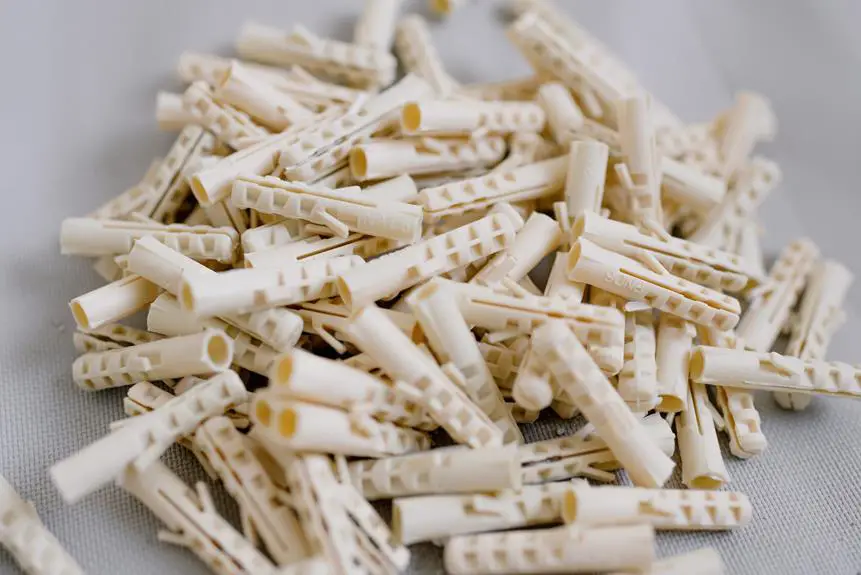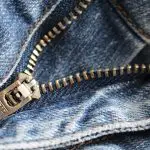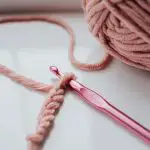Are you ready to explore the potential of plastic Velcro as a replacement for traditional fabric fasteners?
Plastic Velcro has emerged as a symbol of innovation and progress in the fastening industry. Its unique design and material composition offer a range of advantages, challenging the limitations of traditional fabric fasteners. From enhanced durability to diverse applications in various industries, plastic Velcro presents a compelling case for consideration.
As you delve into this topic, you'll uncover the evolving landscape of fastening technology and the potential environmental impact of this shift. Stay informed and discover the future potential and innovations surrounding plastic Velcro as a viable alternative to traditional fabric fasteners.
Key Takeaways
- Plastic Velcro offers durability and longevity, making it a practical alternative to fabric fasteners.
- It is water-resistant and washable, allowing for use in wet or messy environments.
- Plastic Velcro is versatile and suitable for a wide range of applications, from clothing to industrial settings.
- It outperforms fabric fasteners in terms of durability, maintaining grip strength even after repeated use.
The Evolution of Velcro
As you explore the evolution of Velcro, you'll discover how this innovative fastening system has evolved to meet the changing needs of various industries.
Initially developed in the 1940s by Swiss engineer George de Mestral, Velcro was inspired by the potential impact of burdock burrs sticking to his clothing and his dog's fur during a walk in the woods. De Mestral recognized the innovative potential of this natural fastening mechanism and sought to replicate it using man-made materials.
The evolution of Velcro has been marked by continuous innovation, with the fastening system transitioning from its original fabric-based design to modern iterations that incorporate plastic components. This transition has expanded Velcro's potential applications, allowing it to withstand harsh environmental conditions and increasing its durability.
As a result, Velcro has had a significant impact across diverse industries, from aerospace and automotive to fashion and healthcare. Its ability to provide secure and reusable fastening solutions has made it an indispensable innovation in various fields, demonstrating the lasting impact of its evolution.
Advantages of Plastic Velcro
Plastic Velcro offers durability over time, making it a long-lasting fastening solution for various applications. It's water-resistant and washable, allowing for easy maintenance and use in wet or messy environments.
Additionally, its versatility makes it suitable for a wide range of uses, from clothing and accessories to household and industrial applications.
Durability Over Time
You'll find that plastic Velcro offers exceptional durability over time, making it a practical and long-lasting alternative to traditional fabric fasteners.
In a durability comparison, plastic Velcro outperforms fabric fasteners due to its material composition. The plastic hooks and loops are resistant to wear and tear, maintaining their grip strength even after repeated use. Unlike fabric fasteners, plastic Velcro is less prone to fraying or losing its adhesive properties over time.
The plastic material is also more resistant to moisture and humidity, ensuring that the fastening system remains reliable in various environmental conditions. This durability over time makes plastic Velcro an ideal choice for applications where long-term performance is essential, such as in outdoor gear, medical devices, and industrial settings.
Water-Resistant and Washable
With plastic Velcro, you can rely on its water-resistant and washable properties for versatile and low-maintenance fastening solutions.
The water-resistant innovation in plastic Velcro ensures that it remains effective even in damp or wet conditions. This makes it suitable for outdoor gear, marine equipment, and any applications where exposure to moisture is a concern.
Additionally, the washable technology allows for easy cleaning and maintenance, making plastic Velcro a practical choice for reusable and hygienic fastening solutions. Its ability to withstand washing without losing its grip or adhesive strength adds to its appeal for a wide range of industries.
Whether in healthcare, sports, or industrial settings, the water-resistant and washable features of plastic Velcro offer a convenient and reliable fastening solution for various applications.
Versatile for Many Uses
Certainly!
Frequently, you'll find plastic Velcro to be a versatile and reliable fastening solution for a wide range of uses. Its material strength allows it to securely hold items together, making it suitable for various applications.
Whether it's for organizing cables, securing accessories, or attaching patches, plastic Velcro's durability ensures long-lasting performance.
Additionally, its versatility in design enables it to be customized for different purposes, such as in clothing, household items, and industrial settings. The ability to be cut into various shapes and sizes further enhances its adaptability, providing flexibility for specific fastening needs.
With its robust material strength and adaptable design, plastic Velcro offers a practical and efficient solution for a multitude of fastening requirements, making it a valuable choice for diverse uses.
Limitations of Fabric Fasteners
When considering fabric fasteners, it's essential to be aware of their potential limitations. Fabric fasteners, while widely used, do have some drawbacks that are important to consider:
- Durability: Fabric fasteners can wear out over time, especially with frequent use or exposure to harsh conditions. This can lead to a decrease in their effectiveness and may require frequent replacement.
- Maintenance: Fabric fasteners can accumulate dirt, lint, and other debris, which may diminish their ability to fasten securely. Regular cleaning and maintenance are necessary to ensure their optimal performance.
- Weight Limitations: Fabric fasteners may have limitations when it comes to holding heavy items in place. Exceeding their weight capacity could result in the fasteners failing to secure the items adequately.
It's important to weigh these limitations against the specific requirements of your application when considering fabric fasteners. While fabric fasteners have been widely used for their convenience, it's also worth exploring alternative fasteners that may offer solutions to these limitations.
Applications in Various Industries
Explore the versatility of plastic Velcro fasteners in diverse industries, revolutionizing traditional fastening solutions.
Industrial applications benefit from the use of plastic Velcro due to its strength, durability, and ease of use. In manufacturing, it's used for securing protective gear, attaching components during assembly, and organizing tools.
The automotive industry also leverages plastic Velcro for various purposes such as securing upholstery, attaching trim panels, and organizing cables and wires within vehicles.
Moreover, it's utilized in the aerospace sector for securing interior components and in the medical field for fastening braces and supports.
The adaptability and reusability of plastic Velcro make it a preferred choice in industries where quick and secure fastening is crucial. Additionally, its resistance to heat, chemicals, and environmental factors further expands its range of applications in industrial settings.
As industries continue to seek innovative and efficient fastening solutions, plastic Velcro is increasingly becoming a staple in various sectors, offering reliability and adaptability.
Durability and Longevity
When considering durability and longevity, it's important to compare the strength and resilience of plastic Velcro versus traditional fabric fasteners.
Plastic Velcro has the potential to offer increased durability and a longer lifespan compared to fabric fasteners in certain applications.
Additionally, it's crucial to examine the environmental impact of both options to make a well-informed decision.
Plastic Vs Fabric Durability
You'll find that plastic Velcro offers greater durability and longevity compared to traditional fabric fasteners.
Plastic vs fabric strength, Long term performance comparison.
Plastic Velcro is more durable and longer-lasting than fabric fasteners due to its inherent resistance to wear and tear. The plastic hooks and loops are less prone to fraying or weakening over time, ensuring a longer lifespan for the fastening system.
Additionally, plastic Velcro is better equipped to withstand exposure to moisture, making it suitable for a wider range of environments and applications.
Moreover, the plastic material is less susceptible to damage from UV rays, maintaining its strength and integrity even with prolonged outdoor use.
Longevity of Plastic
Plastic Velcro offers superior durability and longevity compared to traditional fabric fasteners, ensuring a longer lifespan and enhanced performance in various environments and applications.
The plastic material used in Velcro is resistant to moisture, chemicals, and UV radiation, making it highly durable even in harsh conditions. This longevity is particularly beneficial for industries such as aerospace, automotive, and marine, where traditional fabric fasteners may degrade over time.
Additionally, plastic Velcro's durability reduces the need for frequent replacements, thereby decreasing waste and minimizing its environmental impact. Its ability to withstand wear and tear while maintaining a strong grip further underscores its longevity, making it a reliable choice for applications requiring sustained fastening power.
Environmental Impact Comparison
Considering the environmental impact and comparing the durability and longevity of plastic Velcro against traditional fabric fasteners reveals essential insights for making informed choices in various industries. Plastic Velcro and traditional fabric fasteners differ significantly in terms of their environmental impact and longevity.
Here's a material comparison and waste reduction analysis:
- Material Comparison: Plastic Velcro is made from durable synthetic materials, whereas traditional fabric fasteners are typically made from cotton or nylon.
- Waste Reduction: Plastic Velcro has the potential to reduce waste due to its longevity and resilience, contributing to sustainability efforts.
- Carbon Footprint: The production of plastic Velcro may have a higher initial carbon footprint, but its long-term durability can lead to reduced waste and lower environmental impact.
Understanding these factors is crucial for industries aiming to make sustainable and environmentally conscious choices.
Environmental Impact
One might consider the environmental impact of plastic Velcro as a crucial factor in evaluating its potential to replace traditional fabric fasteners.
Plastic waste and sustainability are significant concerns associated with plastic Velcro. The production and disposal of plastic Velcro contribute to the accumulation of plastic waste, which has adverse effects on the environment. However, recycling options and eco-friendly alternatives can mitigate these concerns.
While plastic Velcro may pose challenges in terms of sustainability, ongoing advancements in recycling technologies and the development of biodegradable or compostable alternatives offer promising solutions. The impact of plastic Velcro on the environment depends on various factors, including its production processes, usage, and end-of-life disposal. As such, assessing its environmental footprint requires a comprehensive understanding of the entire product life cycle.
When considering plastic Velcro as a potential replacement for traditional fabric fasteners, the environmental implications should be carefully weighed against its functional benefits. With advancements in sustainable materials and recycling practices, the environmental impact of plastic Velcro may evolve over time, offering opportunities for more eco-friendly options.
Future Potential and Innovations
Assessing the future potential and innovations of plastic Velcro involves examining its adaptability to evolving consumer needs and technological advancements. Plastic Velcro, with its versatility and durability, holds promise for various applications and advancements in the fastening industry.
- Future Innovations: The development of plastic Velcro with enhanced adhesive properties and resistance to extreme conditions could lead to its use in aerospace and automotive industries for securing panels and components. Furthermore, advancements in manufacturing techniques may result in the creation of even stronger and more flexible plastic Velcro, expanding its potential applications.
- Potential Applications: Plastic Velcro's potential to be integrated into smart and wearable technology opens the door to innovative designs for fitness trackers, medical devices, and clothing with customizable fastening solutions. Additionally, its application in the medical field for wound closures and securing medical equipment showcases the diverse range of potential uses for this material.
As plastic Velcro continues to evolve, it presents exciting possibilities for future innovations and potential applications across various industries. Its adaptability and strength make it a material with significant potential for enhancing fastening solutions and meeting the demands of evolving technologies.
Frequently Asked Questions
What Are the Specific Chemical Properties of Plastic Velcro That Make It Different From Traditional Fabric Fasteners?
Plastic velcro differs from traditional fabric fasteners due to its unique chemical composition, offering enhanced material durability. The specific chemical properties of plastic velcro contribute to its strength and resilience, making it a potential alternative to traditional fabric fasteners.
Are There Any Potential Health Risks Associated With Using Plastic Velcro Compared to Fabric Fasteners?
When using plastic Velcro compared to fabric fasteners, you should be aware of potential environmental impact and long-term durability. It's crucial to consider any health risks associated with plastic Velcro and how they differ from fabric fasteners.
How Does the Cost of Plastic Velcro Compare to Traditional Fabric Fasteners?
When comparing the cost of plastic velcro to traditional fabric fasteners, plastic velcro is generally more cost-effective. Additionally, plastic velcro can have a lower environmental impact due to its durability and recyclability.
Can Plastic Velcro Be Used in Extreme Temperature or Weather Conditions?
In extreme temperature or weather conditions, plastic Velcro is suitable for aerospace and military applications. It provides reliable fastening due to its durability and resistance to harsh environments. Plastic Velcro is a viable alternative in these demanding settings.
Are There Any Specific Industries or Applications Where Plastic Velcro Is Not Suitable or Effective?
In some industrial applications, plastic Velcro may not be as effective as traditional fabric fasteners. Factors like extreme temperatures, chemicals, and heavy-duty use can impact its performance. Assess specific needs before choosing.
- How Does Ring Spun Cotton Affect Garment Fit and Shape Retention? - August 13, 2024
- What Are the Challenges in Producing Ring Spun Cotton? - August 13, 2024
- Is Ring Spun Cotton Suitable for Plus-Size Clothing? - August 13, 2024







